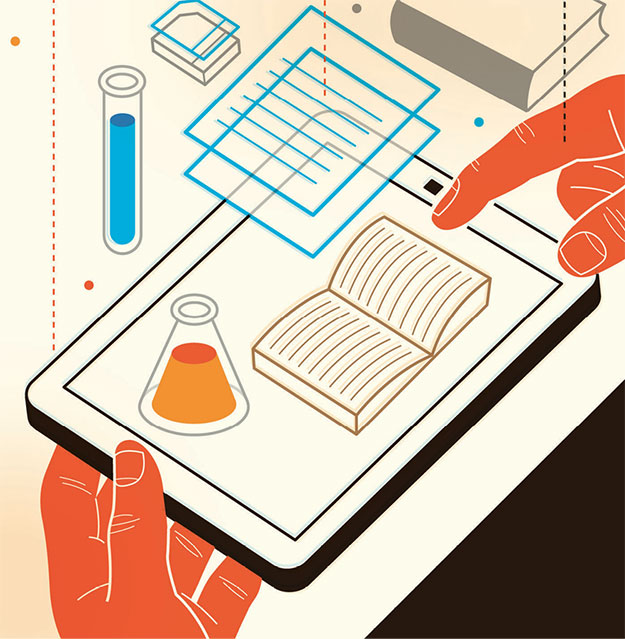Winter 2016: Energy Evolution
From carbon dioxide conversion to landfill mining, researchers at UTA are seeking viable alternative energy options.
Skip to content. Skip to main navigation.
From carbon dioxide conversion to landfill mining, researchers at UTA are seeking viable alternative energy options.
Found in everything from space shuttles to dental fillings, composite materials have thoroughly infiltrated modern society. But their potential is still greatly untapped, offering researchers ample opportunity for discovery.
Within the particle showers created at the Large Hadron Collider, answers to some of the universe’s mysteries are waiting.
Model systems like pigeons can help illuminate our own evolutionary and genomic history.
UT Arlington's tiny windmills are bringing renewable energy to a whole new scale.
The stability of our highways, pipelines, and even manholes is reaching a breaking point.
Scientists believe they have discovered a subatomic particle that is crucial to understanding the universe.
UT Arlington researchers unlock clues to the human body’s most mysterious and complex organ.
UT Arlington researchers probe the hidden world of microbes in search of renewable energy sources.
Wounded soldiers are benefiting from Robert Gatchel’s program that combines physical rehabilitation with treatment for post-traumatic stress disorder.
Tiny sensors implanted in the body show promise in combating acid reflux disease, pain and other health problems.
Nanotechnology researchers pursue hybrid silicon chips with life-saving potential.
Biomedical engineers combat diseases with procedures that are painless to patients.

E
arlier this year, the Carnegie Classification of Institutions of Higher Education named The University of Texas at Arlington as one of its R-1: Doctoral Universities–Highest Research Activity. This elite group comprises 115 institutions, including such notable universities as Harvard, MIT, and Johns Hopkins.
The Carnegie Classification—which is the definitive list for the top doctoral research universities in the United States—analyzes data from the Integrated Postsecondary Education Data System for all U.S. post-secondary institutions and evaluates their research activities in making its assessments, released every five years.
"This is a tremendous validation of UTA's emergence as a preeminent university on the national stage," President Vistasp M. Karbhari says. "Being ranked as a Research 1 university places us truly among the best of the best."
The Carnegie Classification's assessments fall into three categories: moderate, higher, and highest research activity. They are based on the following correlates: research and development expenditures in both science and engineering and non-science and engineering fields; science and engineering research staff including post-doctoral candidates and non-faculty staff with doctorates; and doctoral conferrals in humanities and social sciences fields, STEM fields, and other areas such as business, education, public policy, and social work.
"Achieving the Carnegie ‘highest research activity' designation places UTA in an entirely new league," says State Sen. Kelly Hancock (R-North Richland Hills). "Having a research institution of this caliber in our community is an important asset."
Dr. Karbhari agrees: "Thriving research universities foster economic development by infusing their regions with technology, knowledge, and talent. This new assessment is another milestone for the model-21st century urban research university and the urban flagship for the University of Texas System."
Illustration by Harry Campbell